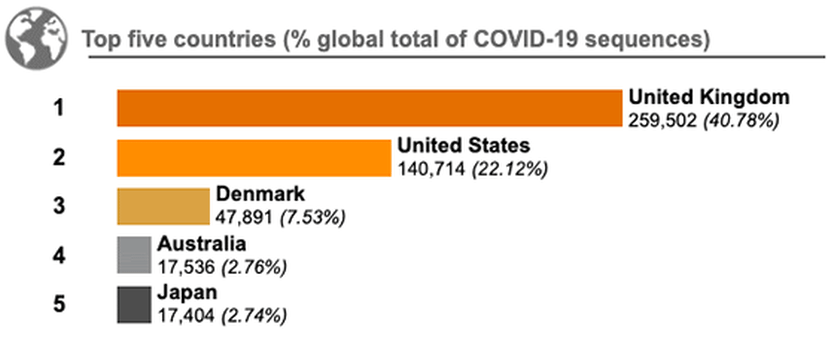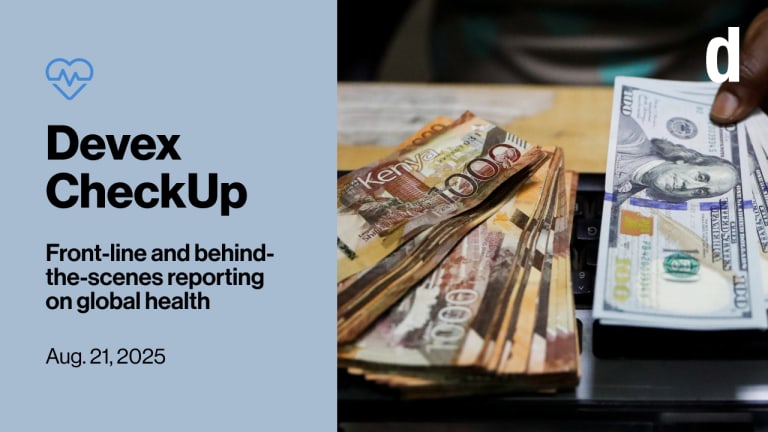
A year ago today, the World Health Organization officially declared the coronavirus outbreak a pandemic. Today, as we launch our weekly newsletter that will bring you the latest updates and in-depth reporting on global health from across the world — here's the question we, Jenny Lei Ravelo and Amruta Byatnal, are asking: Is the COVAX dream fading?
COVAX: Not a cure-all. One year after the pandemic’s official declaration, vaccine equity is still far from reality. And while COVAX — heralded by GAVI as the “only truly global solution” to the pandemic — is finally delivering doses, Jenny discovers it’s also beset with problems, from manufacturing bottlenecks to underfunding (by about $1 billion) to vaccine hoarding by high-income countries.
• Some middle-income countries, like Mongolia and Vietnam, were strikingly successful at battling the pandemic early on. But now they’re struggling to secure (and pay for) vaccines, writes Contributing Reporter Andrew Green.
• While most countries scramble for vaccines, Associate Editor Rumbi Chakamba takes a look at countries such as Tanzania and Madagascar, whose governments have explicitly rejected inoculation in favor of treating the pandemic with prayers, tea, and smoothies.
• The Coalition for Epidemic Preparedness Innovations launched a $3.5 billion project Wednesday, that aims to ensure future pandemics have a vaccine developed within 100 days.
• Dozens of high-income countries have secured far more doses than their populations will need, meaning a huge surplus is expected … just not yet. Countries such as the U.S. have more than 450 million excess doses, even as President Joe Biden has recently committed to sharing surplus vaccines. But one proposed framework would limit the number of doses such countries can hoard during a global emergency.
Explore our coverage for updates on all things global health.
Exclusive: Who's tracking COVID-19 mutations

One big fear as vaccines roll out is that mutations will emerge that render them obsolete. That makes tracking virus variants of the utmost importance — but how many countries are actually doing it? Reporter Sara Jerving crunches the numbers in this exclusive story.
From the front lines
"Early on in the pandemic, we weren't given any training on how to communicate the risks of COVID-19, and sometimes we struggled in convincing people to wear masks and practice social distancing. Now we face the same issue with vaccination. If we are trained, we can do our jobs better," says Soni Kumari, an accredited social health activist in Bihar, India.

Each week, we ask a health care worker what would make their work in the pandemic easier. Do you know a health care worker with something to say? Send Amruta a note.
CheckUp Voices
Interview: As the new head of health finance at the Global Fund to Fight AIDS, Tuberculosis and Malaria, professor Kalipso Chalkidou has been tasked with bringing together different teams working on aspects of health financing across the Secretariat, she tells Devex. (Pro)
Opinion: Women have been at the forefront of the global response to COVID-19, but the pandemic has also put their lives under siege — and it’s time for the world to show solidarity toward gender equality, GAVI’s deputy CEO Anuradha Gupta writes.
DevExplains: What are the pros and cons of each COVID-19 vaccine?
Coming soon
CheckUp Newsmaker: On March 18, we will host a live conversation with Africa Centres for Disease Control and Prevention Director Dr. John Nkengasong. Led by Reporter Sara Jerving, this exclusive chat will examine what’s next as Africa moves forward with the largest vaccination campaign in the continent’s history. Register today.
Interview: Tony Blair: In the next edition of CheckUp, you’ll hear from former U.K. Prime Minister Tony Blair, head of the Institute for Global Change, on vaccine access, foreign aid for health programs, and the need to bolster local manufacturing capacity in the global south.
What we’re reading
Brazil’s hospitals “close to collapse” due to COVID-19. [BBC]
New data found pregnancy is a risk factor for severe COVID-19. [Nature]
China has launched a “virus passport” for travelers. [Al Jazeera]
On this day in 2020
“We cannot say this loudly enough, or clearly enough, or often enough: All countries can still change the course of this pandemic,” WHO Director-General Tedros Adhanom Ghebreyesus said as he declared the global COVID-19 outbreak a pandemic.
Explore our COVID-19 timeline for more updates.









